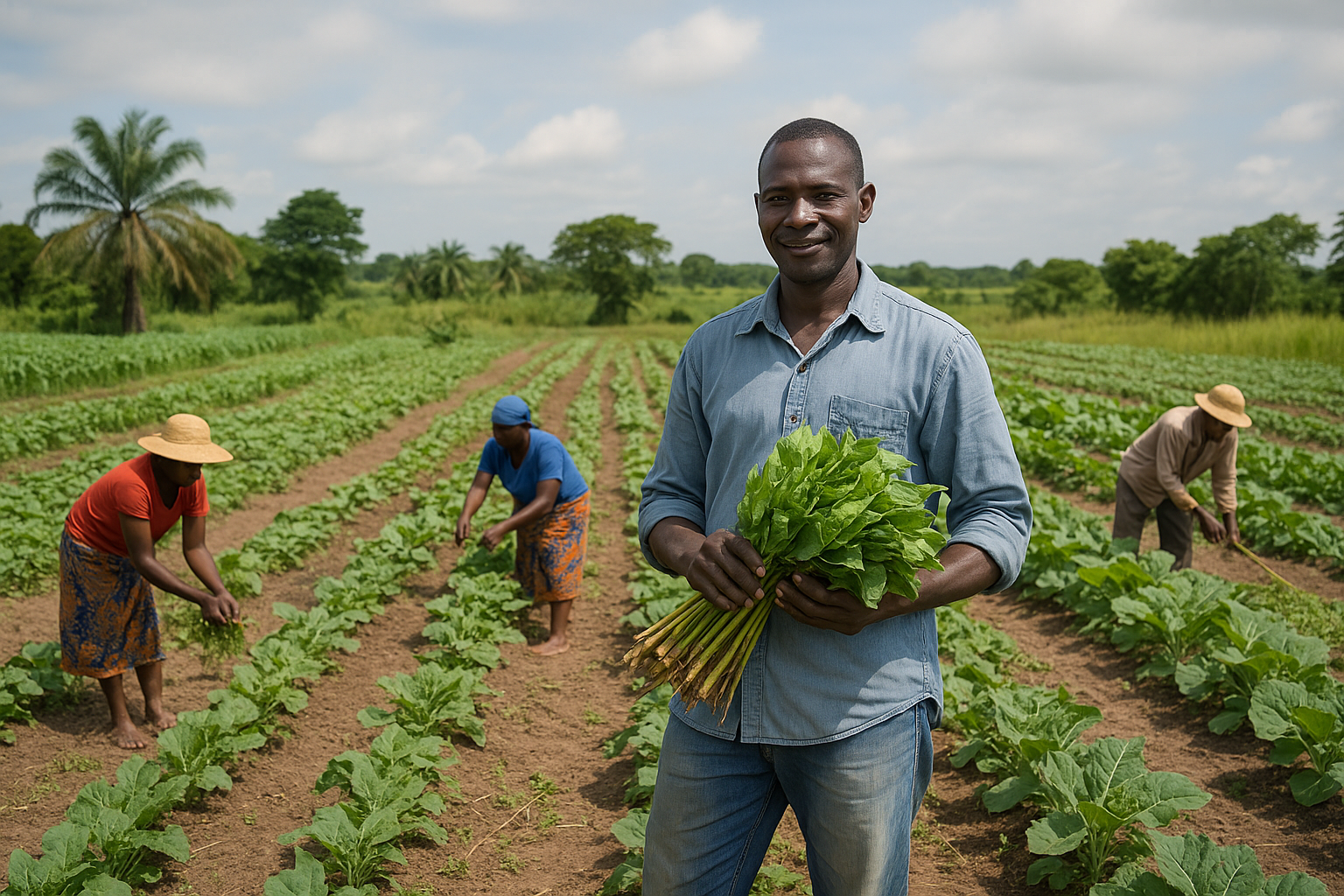FAO Urges Collective Action as 52 Million Face Food Insecurity in West Africa
In Senegal, for example, the FAO has supported the revision of the Agro-Sylvo-Pastoral Orientation Law, broadening its scope to incorporate fisheries, food systems, and climate change adaptation.

- Country:
- Senegal
As West Africa grapples with an unprecedented food and nutrition crisis, the newly appointed Acting Subregional Coordinator of the FAO Office for West Africa, Ms. Bintia Stephen-Tchicaya, is championing an urgent and transformative agenda. In a recent interview with the African Press Agency (APA News), she called for bold, coordinated action to address the worsening food insecurity affecting nearly 52 million people across the Sahel and West Africa.
Despite these alarming numbers reported in the 2025 Regional Report on Food and Nutrition Security in the Sahel and West Africa, Ms. Tchicaya remains optimistic. “The region has all it takes to sustainably transform its food systems,” she affirmed, pointing to abundant natural resources, deep cultural resilience, and emerging innovations in food and agricultural development.
Four Betters: A Strategic Vision for West African Transformation
At the heart of Ms. Tchicaya’s leadership approach is the “Four Betters” strategy, which underpins the FAO’s global roadmap:
-
Better Production
-
Better Nutrition
-
A Better Environment
-
A Better Life
She explained that this framework serves as a comprehensive lens for building food systems that are not only resilient and competitive, but also inclusive and climate-sensitive. Her vision aims to tackle the structural and cyclical challenges of West African agriculture, ranging from erratic weather patterns and soil degradation to market volatility and conflict-driven displacement.
Local Solutions: Scaling Up Proven Community-Based Approaches
Ms. Tchicaya highlighted the FAO’s emphasis on participatory, grassroots-based development models such as:
-
Farmer Field Schools (FFS) – A hands-on learning approach that empowers smallholder farmers with technical and environmental knowledge.
-
Dimitra Clubs – Community dialogue platforms, particularly focused on gender inclusion, social cohesion, and behavioral change.
“These initiatives have proven their ability to drive tangible improvements in agricultural practices and community engagement,” she said. “They are now being adopted and scaled by governments and civil society alike.”
In Senegal, for example, the FAO has supported the revision of the Agro-Sylvo-Pastoral Orientation Law, broadening its scope to incorporate fisheries, food systems, and climate change adaptation.
Environmental Innovation: Anchoring Resilience in the Great Green Wall
As part of the battle against desertification and climate-induced food shocks, the FAO is playing a leading role in Africa’s Great Green Wall initiative—a bold effort to restore degraded landscapes across the Sahel.
Ms. Tchicaya disclosed that the FAO is supporting Senegal in establishing a Reforestation Agency and facilitating the development of 70 resilient green hubs across arid zones between 2023 and 2032.
These green hubs aim to provide:
-
Sustainable water access
-
Climate-resilient crops
-
Livelihood opportunities in agroforestry and eco-tourism
-
Community-led conservation programs
Funding and Partnerships: A New Model for Resource Mobilization
Given the decline in traditional development aid, Ms. Tchicaya emphasized the need for diversified funding strategies, calling on:
-
Public-Private Partnerships (PPPs)
-
Climate and green financing mechanisms
-
Emerging donors and philanthropic foundations
-
Regional banks and multi-donor trust funds
-
South-South and triangular cooperation models
“It is vital that we move beyond dependency and build a coalition of new and traditional partners to mobilize resources effectively,” she stressed.
Leveraging Digital Technology to Secure Food Systems and Livelihoods
Digital transformation lies at the core of FAO’s future strategy in West Africa. From satellite-based crop monitoring to AI-powered livestock traceability, the FAO is increasingly investing in tech-driven solutions to enhance:
-
Productivity
-
Early warning and surveillance
-
Livestock protection
-
Disaster risk reduction
Ms. Tchicaya pointed to the growing threat of livestock theft, which is destabilizing rural livelihoods across the Sahel. “Digital identification, tracking systems, and e-veterinary services are essential tools for safeguarding pastoral economies,” she said.
Early Warning and Rapid Response: Enhancing Crisis Preparedness
The FAO’s strategic role in food crisis surveillance is central to its mandate. Working through platforms like PREGEC (Regional System for the Prevention and Management of Food Crises) and tools like the Global Information and Early Warning System (GIEWS), the FAO is bridging the gap between data and action.
“Our added value lies in the connection between early warning and rapid response. We want to act before a food crisis spirals out of control,” Ms. Tchicaya explained.
This anticipatory approach includes real-time monitoring of harvests, weather risks, and market disruptions, ensuring governments and humanitarian actors can deploy aid before vulnerabilities escalate.
Final Call: A Shared Mission for Regional Resilience
In her concluding remarks, Ms. Tchicaya issued a strong call for solidarity and joint action:
“We must act together—governments, technical and financial partners, the private sector, and civil society—to build resilient, inclusive, and sustainable food systems that reflect the aspirations of West African populations.”
As the food security challenge grows more complex due to climate and conflict, the FAO’s new leadership is committed to turning adversity into opportunity, using innovation, inclusion, and intersectoral partnerships to feed the future of West Africa.
- READ MORE ON:
- FAO
- Bintia Stephen-Tchicaya
- West Africa food crisis
- food security
- Sahel nutrition
- Great Green Wall
- digital agriculture
- early warning systems
- livestock protection
- participatory farming
- South-South cooperation
- climate resilience
- food systems transformation
- public-private partnerships
- FAO Four Betters strategy
- sustainable development West Africa










